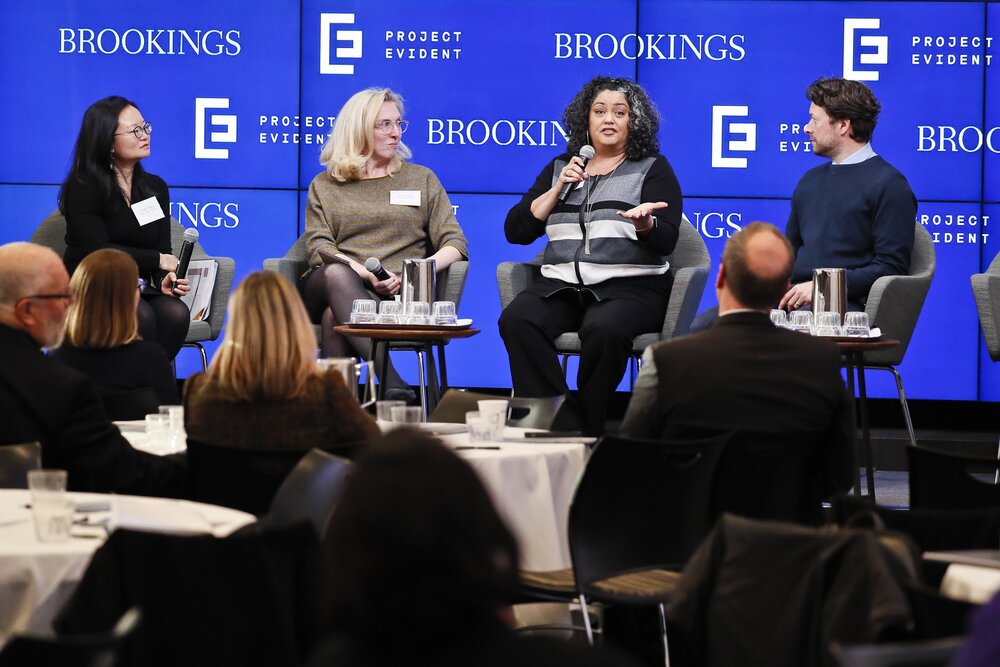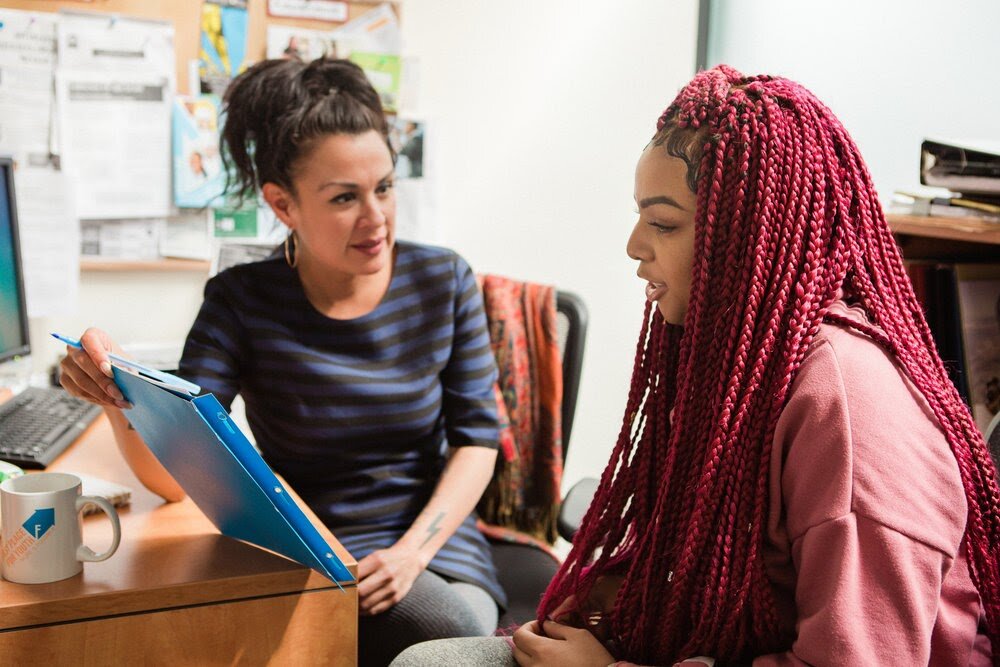Project Evident Updates
Winter 2020 Updates: Reflections, Milestones, and a Look Ahead

The Next Generation of Evidence Will Be Practitioner-Led
After learning about a new data-sharing agreement between St. Paul’s schools and government, education justice advocate Marika Pfefferkorn became concerned. She felt that the agreement, which had gone into effect with little community involvement or awareness, had the potential to perpetuate racial disparities in Minnesota’s educational and criminal justice systems – specifically through predictive analytics using school suspensions as a way to identify children at risk for involvement in the juvenile justice system. In response, Marika co-founded the Coalition to Stop the Cradle to Prison Algorithm (CPA Coalition), which led a successful grassroots movement to overturn the agreement and to ensure community members are formal partners in future efforts that use their data.
Marika’s story was just one of many shared at Project Evident’s recent Next Generation of Evidence convening that demonstrates the need for a new approach to evidence building that puts practitioners at the center, supports social sector R&D, and elevates community voice. Co-hosted with the Center on Children and Families at the Brookings Institution with support from the William T. Grant Foundation and Arnold Ventures, the gathering built on years of exploration and efforts to advance the use of evidence to drive funding and policy, and to increase the supply of evidence-based programs. Our goal was to invite a diverse group of leaders and innovators to think collectively about what a possible future might look like – one that flips the script and puts practitioners and communities at the center of those programs.
Welcoming Project Evident’s Education Practice Advisory Board
This past fall, we announced the launch of our Education Practice, which works with state and local education agencies, nonprofits, and funders to use data and evidence to improve outcomes for students, families, and communities. To ensure that our work reflects the needs of practitioners, we are pleased to have the support of an Education Practice Advisory Board that represents leaders from across the education sector.
- Anita Murphy, District Superintendent, Capital Region BOCES
- Dale Erquiaga, CEO and President, Communities In Schools
- JoLynn Berge, Chief Financial Officer, Seattle Public Schools
- Karyn T. Lynch, Chief of Student Support Services, The School District of Philadelphia
- Melissa Junge, Co-Founder, Federal Education Group, PLLC
Our Advisory Board will help us develop and refine the Education Practice’s strategy, services, and activities. More importantly, we will count on them to push us on our ideas while keeping us focused on providing only those services that can help improve student outcomes.

Milestone: 20 SEPs before 2020
In 2019, Project Evident kicked off its 20th Strategic Evidence Plan (SEP) engagement since our founding. The Strategic Evidence Plan, an approach we pioneered with practitioners, offers a roadmap to align an organization’s investments and activities for continuous evidence generation and program improvement. First Place for Youth, one of our earliest SEP partners, is seeing the value of this approach.
To support an ambitious strategic plan that sought to demonstrate their model and scale their cornerstone program nationally, First Place For Youth worked with Project Evident to develop a Strategic Evidence Plan with three overarching goals: improvement, impact, and influence. Since then, First Place has made significant resource changes (human and technical) to align evidence building and use across the organization, enable more real-time data reporting, quickly make decisions using reliable data, and above all else, do the best they can for the youth they serve. In 2019, First Place for Youth and its network partners served 1,715 foster and homeless youth through My First Place and the Independent Living Skills Program.
New and Noteworthy
We are committed to building the field of data and evidence in the social sector by sharing knowledge and insights through resources, publications, and other vehicles.
- Look for Project Evident at these upcoming events:
- February 12: Greater Boston Evaluation Network
- April 1-3: Carnegie Foundation Summit on Improvement in Education in San Francisco
- April 26-28: EERS Annual Conference in Princeton, NJ
- Check out Project Evident’s thinking about how to apply a diversity, equity, and inclusion lens to the work of evidence building in this post by Senior Evidence Director Chuck Carter on the Grantmakers for Effective Organizations blog.
- In December, Managing Director Sara Peters was a panelist for one of the Dreamforce conference’s best-attended sessions on Ensuring Effective Impact Management. See video.
- Project Evident is hiring! See postings here.
We issue this newsletter throughout the year, but you can get more frequent updates by following Project Evident on Twitter and LinkedIn.
Project Evident offers a comprehensive platform of tools, resources, and direct services that help practitioners, local and state education agencies, and funders improve how they measure, evaluate, and report results. Over the past year, we have moved out of “proof of concept” and into a four-year strategic plan to advance our mission of helping leaders harness the power of evidence to achieve greater impact. It’s work we cannot do alone – we are deeply appreciative of your ongoing partnership. Questions on how to take control of your data and generate evidence for your organization? Please reach out – we’d love to hear from you!